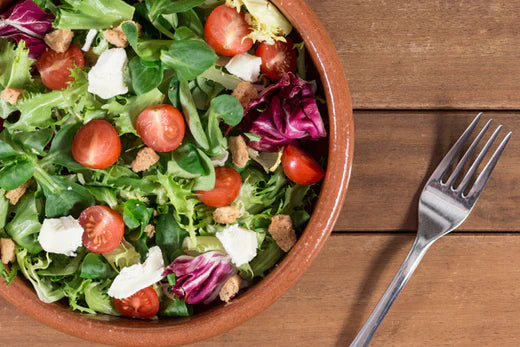Bowl of Wellness

You might have read or asked your nutritionist about what diet should be included in order to lose weight or gain muscles. And you’re suggested to eat more often, maybe, ‘eat five to six meals per day’ than eating big. If we compare with the traditional ‘three squares’ approach to eating, the concept of having micro-meals throughout the day is more popular among weight-loss dieters. It is suggested, when you eat more often you can burn off your calories and can control food cravings. We have this belief from the beginning that eating multiple times a day keeps your metabolism fuelled. But this theory goes back and forth, and newer research shows that it doesn’t slow your metabolism if you’re not feeding multiple times.
Small meals may offer benefits by decreasing hunger and food intake at subsequent meals. Research shows that people who ate small healthy meals frequently consumed fewer calories and they had a lower body mass index than those who ate less than four times over a 24-hour period. Increase in meal frequency has positive effects on cholesterol and insulin levels. Despite the notion that eating frequently leads to burn more calories and the energy involved in digesting, absorbing nutrients from food does not appear to significantly enhance metabolism or the total amount of calories burned.
So do you think you should give up on your diet plan of mini meals, spaced a few hours apart? I would say not really. The perfect timing of eating may depend on various factors unique to each individual. Some are grazers, some are meat-eaters. New mothers may find it difficult to take three meals a day. They have to look after their kids and with kids, you just can’t sit and have a full meal. So for them, they can follow the habit of small frequent meals. Health issues can affect your eating style. If you’re diabetic or suffering from low blood sugar, keeping a long gap between meals can make you feel tired and weak.
It is believed that eating frequent meals may trouble those who have problems with portion control, when the sight of a specific food tempts you to eat it, which can help you in increasing weight. Eating frequently has the biggest potential benefits, it helps in keeping your blood sugar level stable. The roller-coaster of blood sugar is associated with frequent meals and giant portions contribute to weight gain and blood sugar issues. To keep your mini-meals in-line with your needs divides your total calorie intake evenly and also include mini-meals that contain a balance of protein, healthy fats from the whole ingredients like nuts, fruits, chickpeas etc. This way you can settle yourself with the right amount of nourishing munching. Eat only when you’re hungry, mini-meals satisfies your hunger, but you’ll not feel super full. If you’re still hungry, you can wait for some time and reevaluate your body’s signals before doing so.
Popular Posts

Ageing Gracefully: What Ayurveda Says About Immunity Over Time
20 Feb, 2026Mark Twain once said: ‘Do not regret growing older. It is a privilege denied to many.’Ayurveda to...
Read more
Feeling Sluggish? Signs Your Liver Is Struggling & What Helps
18 Feb, 2026Feeling sluggish, bloated, or constantly fatigued may be more than just a busy lifestyle — it cou...
Read more
Heart Health in Ayurveda: Natural Ways to Support Circulation & Vitality
16 Feb, 2026Heart disease remains one of the leading causes of morbidity worldwide, and in India, it increasi...
Read more




 Popular Read
Popular Read

















































